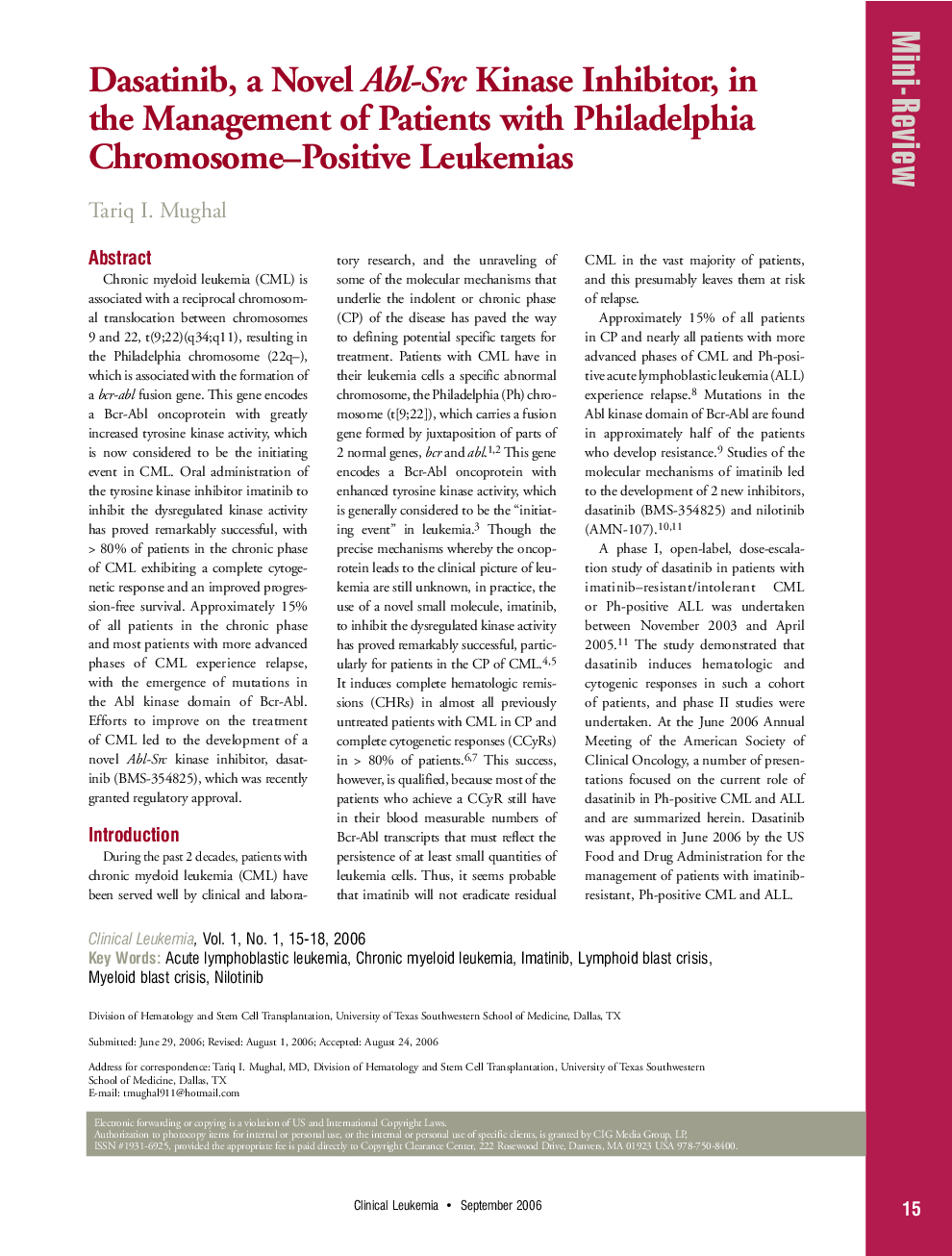| Article ID | Journal | Published Year | Pages | File Type |
|---|---|---|---|---|
| 3981076 | Clinical Leukemia | 2006 | 4 Pages |
Chronic myeloid leukemia (CML) is associated with a reciprocal chromosomal translocation between chromosomes 9 and 22, t(9;22)(q34;q11), resulting in the Philadelphia chromosome (22q–), which is associated with the formation of a bcr-abl fusion gene. This gene encodes a Bcr-Abl oncoprotein with greatly increased tyrosine kinase activity, which is now considered to be the initiating event in CML. Oral administration of the tyrosine kinase inhibitor imatinib to inhibit the dysregulated kinase activity has proved remarkably successful, with > 80% of patients in the chronic phase of CML exhibiting a complete cytogenetic response and an improved progression- free survival. Approximately 15% of all patients in the chronic phase and most patients with more advanced phases of CML experience relapse, with the emergence of mutations in the Abl kinase domain of Bcr-Abl. Efforts to improve on the treatment of CML led to the development of a novel Abl-Src kinase inhibitor, dasatinib (BMS-354825), which was recently granted regulatory approval.
